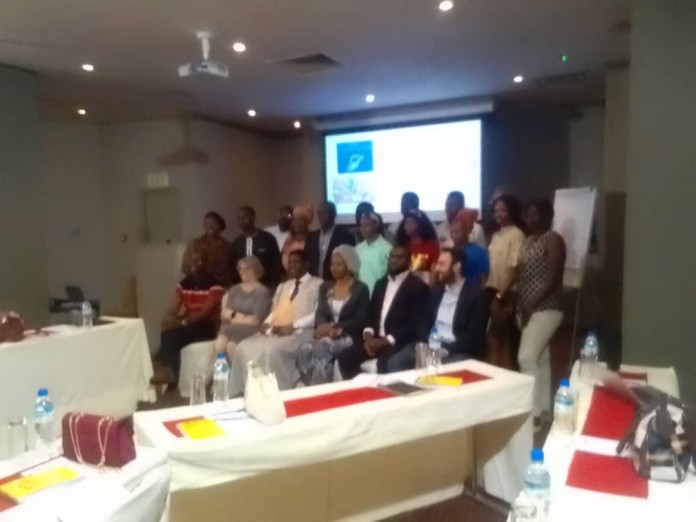By Abubakarr Harding
In an effort to empower women and promote their participation in society, the Carter Center and the Society for Democratic Initiative (SDI) recently held a two-day training session for enumerators from five different districts in Sierra Leone. The training, which took place on January 19th and 20th at the Radisson Blu Aberdeen Freetown, aimed at providing women with the information and tools they need to assert their rights and make their voices heard.
The issue of women’s access to information has become increasingly pressing in recent years, as many women find themselves excluded from important decision-making processes and unable to contribute to society in meaningful ways. This is often due to a lack of access to information, which can make it difficult for women to understand their rights and advocate for themselves.
The training session aimed at addressing that problem by providing enumerators with the knowledge and skills they need to help women access useful information and develop themselves. The enumerators will then use this information to help women take part in and contribute to the development of their communities.
According to the Executive Director for SDI, Emmanuel Saffa Abdulai, the lack of access to information for women has become a pressing issue in today’s societies and has led to many women dropping out of decision-making processes and unable to fully participate in society. The research study also aims to address the problem by identifying the successes, hindrances and challenges that women face in accessing information.
The study will also examine situations in which women are disadvantaged or are hesitant to go to public institutions to access information. Without access to basic information, women and their children may suffer. The research team aims to identify the challenges and provide recommendations to improve access to information for women. These recommendations will be implemented not only by SDI and the Information Commission but also by the Government.
The research is not based on assumptions, but on empirical data that will be collected in the field. The data will be used to inform Government decisions and interventions on issues related to health, transportation, and education. The research was a step towards ensuring that women have the right to information and to voice out their opinions which will help in the development of the society.Top of Form
The training was well-received by the participants, who appreciated the opportunity to learn more about their rights and how to access information. Many of the women expressed a desire to use their new knowledge to help others in their communities, and many were excited about the prospect of being able to take an active role in decision-making processes.
The Society for Democratic Initiative (SDI) has been working alongside enumerator Gerald A. Foday to complete the Access to Information Act. As a leading advocate for the Act since its inception, Foday has emphasized the importance of understanding how women in Sierra Leone are able to access information from public institutions.
To gather this information, the SDI and the Carter Center will conduct research in the field to gather credible data on the subject. This data will then be used to inform Government and development partners on the state of women’s rights to access information in Sierra Leone.
According to Foday, “It is crucial that we understand the barriers and challenges that women face when trying to access information from public institutions. Only by gathering this information can we work to ensure that women’s rights to access information are protected and upheld.”
The Access to Information Act, passed in Sierra Leone in 2013, guarantees the right of citizens to access information held by public institutions. However, it is clear that there is still work to be done to ensure that this right is extended to all members of society, including women.
The research to be conducted by the SDI and the Carter Center will be a crucial step in understanding the current state of women’s access to information in Sierra Leone, and identifying areas for improvement. The findings of the research will be used to inform policies and programs aimed at ensuring that women in Sierra Leone are able to fully exercise their right to access information.
Overall, the ongoing efforts of the SDI, the Carter Center, and advocates like Foday serve as a reminder of the importance of protecting and promoting the rights of all citizens to access information, especially women in Sierra Leone.
Overall, the training session was a success, and the organizers hope that it will help to promote greater participation and empowerment for women in Sierra Leone.






